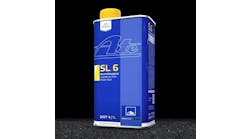The Automotive Service Association (ASA) announced that in response to recent recalls and vehicle safety concerns, U.S. Sen. Jay Rockefeller (D-W.V.), chairman of the Senate Commerce Committee, introduced S. 2559, a bill to expand the National Highway Traffic Safety Administration’s (NHTSA) authority to recall unsafe vehicles and increase funding for automobile safety.
The bill would demand greater transparency from NHTSA by requiring that all customer satisfaction campaigns, customer advisories, recalls, consumer complaints, warranty claims, field reports, technical service bulletins and other activity involving the repair or replacement of motor vehicles or motor vehicle equipment be made available to the public.
It would also require NHTSA to make several regular reports to Congress, including a report on the results of a study of the use of early warning data. The study would evaluate the number of safety defect investigations opened by NHTSA, the duration of each safety defect investigation, and the percentage of the safety defect investigations that result in a safety defect or recall.
Another report would require the secretary of transportation to prepare a report regarding the operations of the Council for Vehicle Electronics, Vehicle Software and Emerging Technologies.
The bill would also increase funding for NHTSA’s vehicle safety programs. The additional funding would stem from a manufacture’s fee of $3 per vehicle beginning in 2015, rising to $6 a year later and then $9 in 2017. The fee would be based on automakers’ U.S. sales. Rockefeller’s bill is currently before the Senate Committee on Commerce, Science and Transportation where it awaits further consideration.
For more information visit www.ASAshop.org, or visit ASA’s legislative website at www.TakingTheHill.com.



